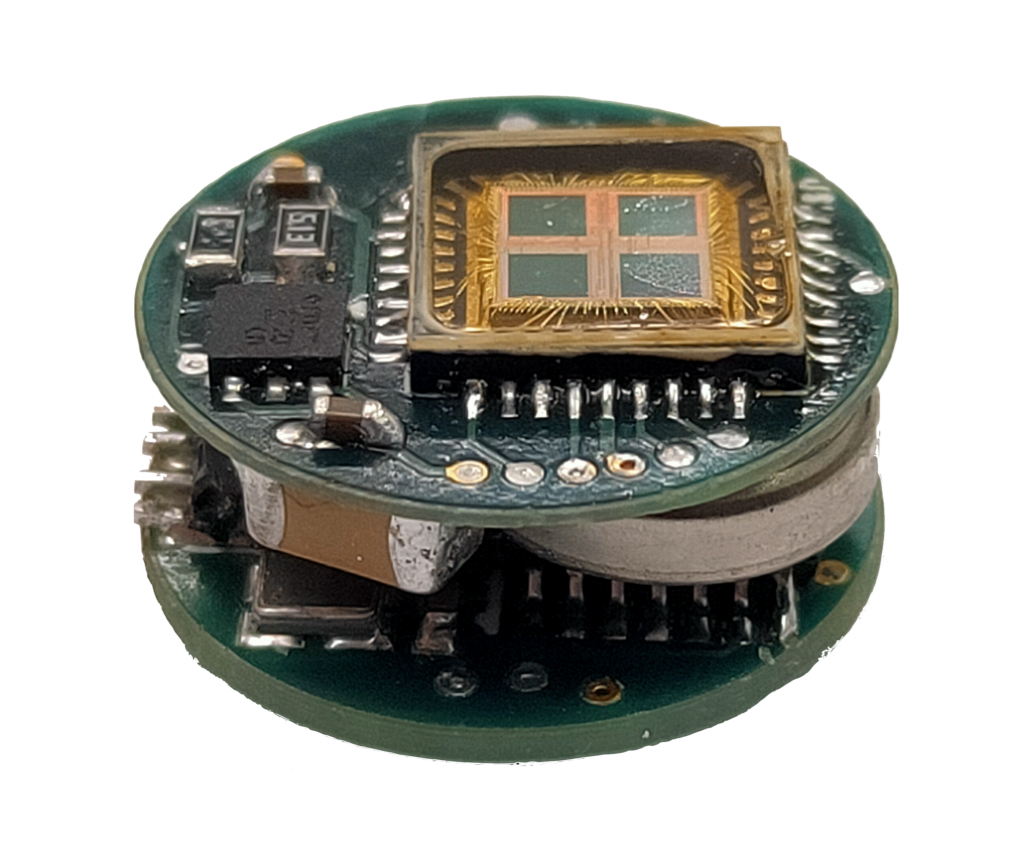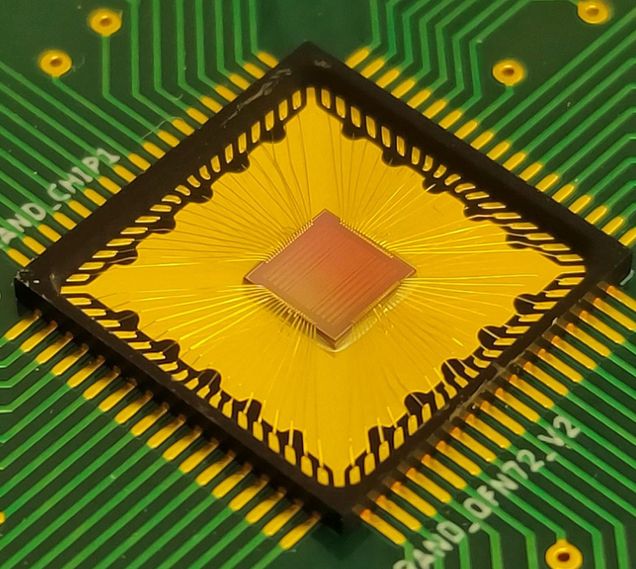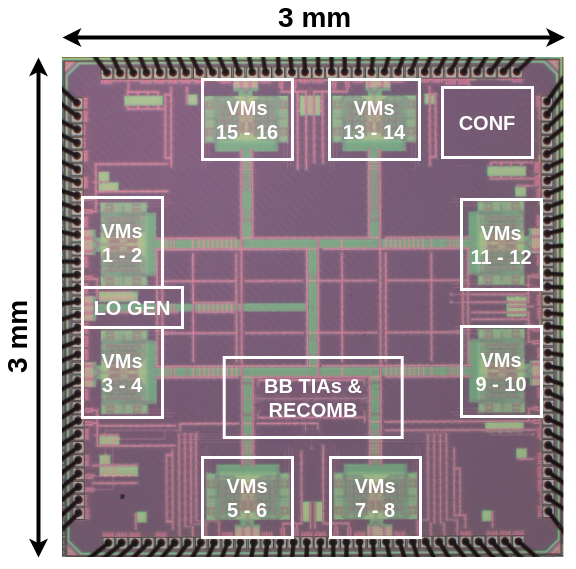Research
Our research is focused on innovating energy-efficient application-specific integrated circuits (ICs) and system solutions in diverse fields, including biosensing, information theory, signal processing, and secure wireless communications. Please find my research statement here.
Cyber-Secure Biological Systems
At the core of our scientific methodology lies the strategic integration of living sensors—specifically, genetically engineered biological systems—with secure, custom-designed integrated circuits. This innovative fusion defines the emerging field of cyber-secure biological systems (CSBS). By capitalizing on biology to sense biology, we unlock the inherent advantages of natural sensors, including resilience in harsh environments, heightened sensitivity, and exceptional specificity. This distinctive synergy not only harnesses the robust attributes of biology but also seamlessly incorporates the reliability and communication infrastructure of electronics. The result is an unparalleled solution that addresses critical societal challenges in healthcare and environmental monitoring, paving the way for transformative advancements at the intersection of synthetic biology and semiconductor technologies.

All-in-One Data Decoders
State-of-the-art decoders traditionally rely on code-specific algorithms specifically designed for each code type, such as Successive Cancellation for Polar codes and Berlekamp–Massey Algorithm for BCH codes. Despite CRC codes being extensively used for error detection in storage and communication, their potential as error-correcting codes has been overlooked due to the absence of a suitable decoder. Remarkably, all these codes, including heretofore un-decodable ones such as Random Linear Codes (RLCs), can actually be efficiently decoded using a singular universal decoder. The Guessing Random Additive Noise Decoding (GRAND) algorithm, recently unveiled as a universal decoder, excels in accurately decoding moderate redundancy codes. GRAND, being a noise-centric decoding technique, is not tied to a specific codebook, making it inherently future-proof. Our research centers on the creation of energy-efficient, low-power, and high-throughput integrated hardware architectures that leverage the GRAND algorithmic family.

Secure Wireless Communications
Security plays a crucial role in the design of low-power connected sensors and edge devices. The potential threats to intelligent wireless systems are particularly hazardous due to the sensitive nature of the exchanged data. Given the stringent constraints on energy and computation resources, relying solely on cryptographic mechanisms for device security is not sufficient. To bolster the security of intelligent sensing and communication systems, our approach is to: (1) identify security vulnerabilities in intelligent sensors; (2) develop innovative countermeasures that leverage the distinctive characteristics of the physical layer; (3) provide tangible demonstrations of these solutions in energy-efficient integrated hardware systems; and (4) analyze performance trade-offs associated with embedding security in integrated intelligent sensor hardware.